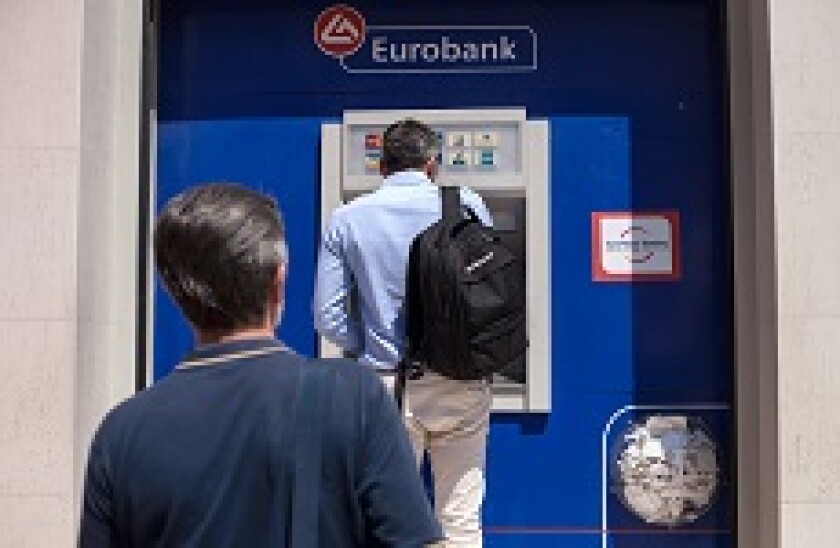For most healthy companies, acquiring a former subsidiary trading at 0.8x book value at a premium, using stock trading at a miserable 0.2x, would be seen as an unequivocally bad thing. It’s a reversal of the usual order of things, in which strong companies with high market confidence buy up ailing rivals at a bargain price.
Instead, Eurobank is using the debased and dilutive currency of its own stock to pay up for a healthier entity.
Then, it will use the capital from the healthier Grivalia to take losses on an NPL sale. This is far from straightforward, and comes in three distinct phases. The moves are a little like the old riddle about how to get a fox, a chicken and grain across the river — Eurobank must transfer its NPL exposures to its shareholders and to the market, without triggering dilution from the state, and without taking the losses through its operating company.
So it will securitize NPLs, transferring junior exposures to its long-suffering shareholders, selling some mezzanine to the market, and keeping senior notes in its holding company. It will create a new operating company, transferring its banking licence, and transfer deferred tax credits from the holding company, the old Eurobank. It will also sell part of its servicer to a strategic buyer.
Unlike the Bank of Greece’s scheme to deal with NPLs, this doesn’t require any legal wizardry. The magic at the heart of the proposal from the central bank, published last week, was the conversion of deferred tax credits (previous tax losses, which the government has already converted into usable capital) into “irrevocable obligations of the Greek state”.
That would, in turn, effectively allow the state to take losses on bank NPL books, through capitalising a vehicle that would buy NPLs at book value and securitize that at market value. It was a powerful sleight of hand — arguably, the Greek banks are in no position to actually use up the DTCs, so if they can be put to work now, so much the better — but no amount of financial complexity could have concealed the extent to which this was very obviously state aid, and therefore potentially illegal under European law.
Eurobank’s scheme, does, however, rely on the deep pockets of Fairfax, the Canadian firm which owns 18% of Eurobank and 51% of Grivalia, and thus, will own 33% of the combined entity, as well as the Hellenic Financial Stability Fund, the Greek government entity which owns stakes in all the banks. As the majority owner of Grivalia, being taken over at a premium paid all in Eurobank stock, it is effectively putting in more cash — and, presumably, signing up to take on the junior notes of the NPL securitization as well.
Fairfax has paid the price for its involvement in the bank. At its latest annual report at the end of last year, the firm’s stake, which cost $975.5m, was fair valued at $395m. It said in the report: “At 74c, with a book value of €2.64 per share, we consider Eurobank to be one of the cheaper stocks in the world! Let’s see what happens this year!”
The firm also said: “With Greece having access to the bond market and strong economic growth, we expect our Greek investments to do very well (at last!).”
Some firms might cut their losses at this point — while the bank’s other strategic investor, US hedge fund boss Wilbur Ross, had to cut his stake in 2017 on becoming US commerce secretary — but Fairfax is hanging in there, putting in yet more money with a chance of finally turning the bank around.
That’s certainly good for Eurobank, which may find itself in pole position in any Greek recovery, as its competitors can’t count on a generous benefactor to help them turn around— but it’s not a solution for the broader Greek economy.

